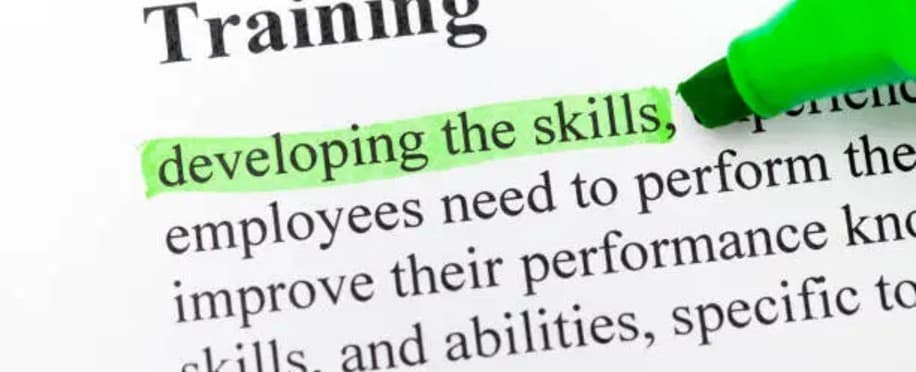Copyright © 2026 lpcentre.com All Rights Reserved. London Premier Centre For Training Ltd Registered in England and Wales, Company Number: 13694538
version: 3.0.1

The Psychology Behind Learning: Why Traditional Employee Training No Longer Works
When organisations launch an employee training programme, the intention is usually good: improve performance, build skills, align the workforce. But what often happens is that the content is delivered, the checkbox is ticked—and real learning doesn’t follow. The reason lies not in lack of effort, but in misunderstanding how adults learn.
The science of workplace instruction actually shows that the most truly effective employee training must go over and beyond delivery and tap into how humans acquire, retain, and apply knowledge. To be meaningful, it must be designed not just to deliver information, but to drive change—change that’s visible in how people think, behave, and collaborate.
In research terms, learning is “the engagement in mental processes resulting in the acquisition and retention of knowledge, skills, and/or affect over time and applied when needed.”
Yet most traditional employee training programmes overlook two essential strategies that usually enhance learning: context and motivation.
When traditional employee training ignores these, the result is predictable: lots of activity, very little transformation, and weak employee management.
Old-school training assumes a fixed world—predictable roles, stable teams, unchanging tasks. But today’s workforce is in motion. The future of work is not only fast—it’s uncertain, digital, and collaborative. People are being asked to re-skill, upskill, and flex into multiple roles across evolving projects.
If your program is rigid and content-heavy, it’s already outdated.
New types of jobs require new skills and new ways to solve workplace conflicts, and learning must adapt accordingly. This is where many organisations struggle: they implement a program without updating the methods. More content, more slides—but no greater impact. And in the meantime, the gap between knowledge and performance continues to grow.
What’s needed is a psychological shift that entirely moves away from “what we teach” and taps into “how people actually change.”

What would be a more innovative approach, grounded in behavioural science? Here's a teeny suggestion:
Your employee training needs to be like real work that matters. Why? When you give people real problems to solve, they are more likely to remember what they've learned and use it more quickly. Why spend time on complicated theory when real-life examples are the best way to learn?
A good design doesn’t just present content; it encourages experimentation, feedback, and application. Training courses in London built around the learner experience are more likely to improve performance and drive behavioural change.
Workers don’t just absorb information—they test it, question it, and adapt it. That’s why peer learning, mentoring, and group exercises matter. It’s how confidence grows, especially in modern teams working across time zones and cultures.
Stop thinking in events. Start building ecosystems. Training must become an integral part of the everyday work process. This includes microlearning, job aids, coaching, and digital tools that continually reinforce concepts.
The result? Higher retention, stronger engagement, and real change, one that is backed by science.
Many still treat employee training as a checkbox—a regulatory requirement or part of HR’s yearly cycle. But the smartest companies know better. They see training as a core investment, a way to increase productivity, improve satisfaction, and build a stronger culture of performance.
When programs are designed to support both individual and team goals, they improve how people show up, contribute, and collaborate. They create alignment between company strategy and human behaviour. And that’s not just efficient—it’s transformational.
If your company is still relying on outdated modules to meet its compliance checklist, it’s time to ask: Is this content driving performance, or simply keeping us busy?
Here's how to rethink your employee training strategy:
The goal is not to have more training—it’s to have smarter, better training that actually changes something. That’s what builds competitive edge. That’s why across London, Dubai, Barcelona, Paris, Istanbul, Kuala Lumpur, Singapore, and Amsterdam, organisations are turning to London Premier Centre Training.
Our internationally accredited courses are designed for today’s dynamic business needs—flexible, contextual, and built to align with your strategic goals. We provide in-market support with local insight and global expertise—so whether you’re training new hires or senior leaders, your programmes deliver real results.
The definition of successful learning is shifting. It's no longer enough for individuals to attend a course. They need to emerge changed—more confident, more skilled, more ready. To achieve that, we must treat every company’s employee training not as an obligation, but as an opportunity to succeed in building stronger, more adaptive organisations. And that requires training that effectively reflects real work, respects human psychology, and drives long-term growth.
So stop building courses. Start building capability.
